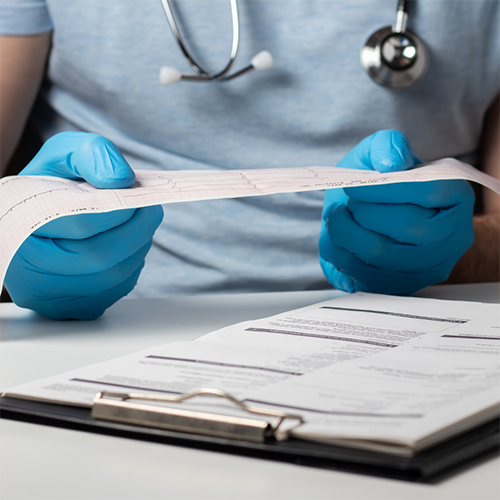
Your heart works around the clock, with no breaks or rest. But have you ever wondered how often it gets the attention it deserves? Here are 10 reasons to make an appointment with your doctor and find answers to important questions about your health.
1. Chest pain
If you feel discomfort, burning or pressing pain in your chest, especially during exertion, it may be the first signal of heart problems.
When to raise the alarm?
If the pain lasts longer than 15 minutes and does not go away at rest, call an ambulance immediately - it may be a preinfarction condition. In heart problems, the nature of the pain and its localization are not important. It is important to pay attention to the presence of the pain syndrome itself in the chest.
2. Dyspnea without serious exertion, swelling of the lower extremities
Feeling short of breath even when walking normally, at rest or at night is not normal. It may indicate heart failure or vascular problems.
How can complications be prevented?
Start by quitting smoking, exercising regularly (at least 30 minutes a day), eating a balanced diet and normalizing your weight.
3. Heart palpitations
A rapid heartbeat, a feeling of “freezing” or an irregular pulse requires attention. It may be a symptom of arrhythmia. And arrhythmia can be a sign of serious problems with the heart and other problems in the body.
What to do?
Please contact cardiologist for passing ECG and other tests.
4. Sports activities
Patients on the background of constant sports, before visiting fitness gyms should necessarily consult with the attending doctor, who will choose the appropriate type of physical activity.
What is important to control?
- well-being
- pressure figures
- пульс.
5. High or low pressure
Blood pressure directly affects the health of the heart. High blood pressure overloads the blood vessels and increases the risk of myocardial infarction and strokes, while low blood pressure impairs blood supply to organs.
What are the figures to aim for?
Normal blood pressure is about 120/80 mmHg. If your blood pressure is above 140/90 and below 90/60, you should see a doctor.
6. Heredity
If your parents or close relatives have had heart attacks or strokes, especially before the age of 60, you are at risk.
When to check the heart?
Regular checkups for men -after the age of 40, for women – at the age of over 50 years.
7. Age over 40 years
As we age, the cardiovascular system undergoes wear and tear.
What examinations are indicated?
- Electrocardiogram (ECG);
- Cardiac ultrasound;
- Cholesterol tests, especially if there is a history of cardiovascular disease.
8. Chronic stress, constant fatigue.
Constant mental stress increases the strain on the blood vessels and heart.
How do you protect your heart?
Learn to relax, exercise, walk outdoors, do things that bring you joy.
9. Sharp pain in the arm, neck or jaw
These symptoms may be signs of a preinfarction state. Special attention should be paid to patients with diabetes mellitus, gout and chronic kidney disease.
When to call an ambulance?
If the pain worsens and is accompanied by nausea or cold sweats, and does not go away after taking nitroglycerin - call 103 immediately.
10. Syncope (not related to head injuries)
Sudden loss of consciousness is a serious signal that should not be ignored. It may be due to arrhythmia, a drop in blood pressure or other cardiac abnormalities.
What to do?
Be sure to be evaluated by a cardiologist and neurologist if you have had at least one episode of fainting.
If you notice one or more of the above signs, don't put off seeing your doctor!
And regular routine check-ups help to detect diseases at early stages, which means that measures can be taken in time to prevent serious diseases and preserve the quality and length of life.



